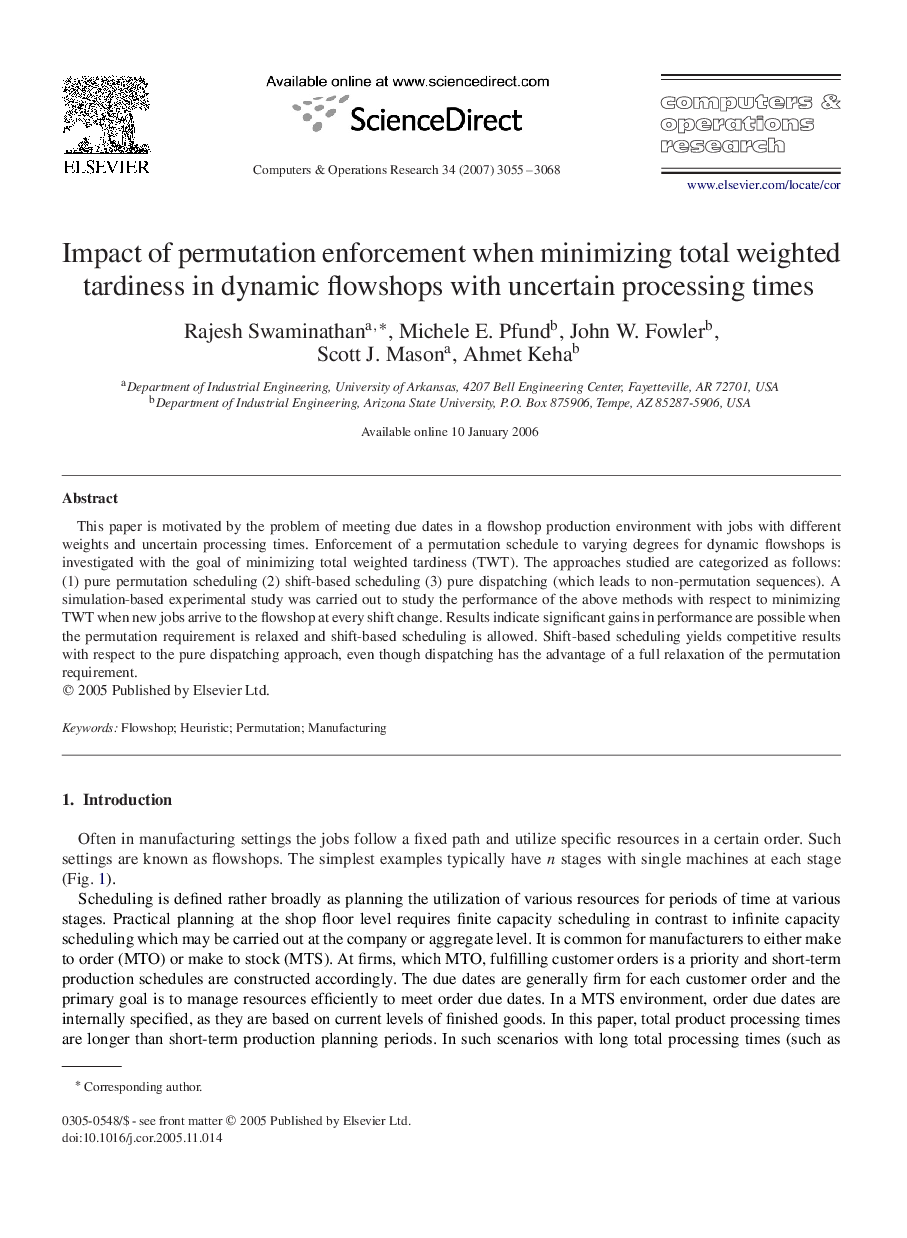| Article ID | Journal | Published Year | Pages | File Type |
|---|---|---|---|---|
| 475464 | Computers & Operations Research | 2007 | 14 Pages |
This paper is motivated by the problem of meeting due dates in a flowshop production environment with jobs with different weights and uncertain processing times. Enforcement of a permutation schedule to varying degrees for dynamic flowshops is investigated with the goal of minimizing total weighted tardiness (TWT). The approaches studied are categorized as follows: (1) pure permutation scheduling (2) shift-based scheduling (3) pure dispatching (which leads to non-permutation sequences). A simulation-based experimental study was carried out to study the performance of the above methods with respect to minimizing TWT when new jobs arrive to the flowshop at every shift change. Results indicate significant gains in performance are possible when the permutation requirement is relaxed and shift-based scheduling is allowed. Shift-based scheduling yields competitive results with respect to the pure dispatching approach, even though dispatching has the advantage of a full relaxation of the permutation requirement.
